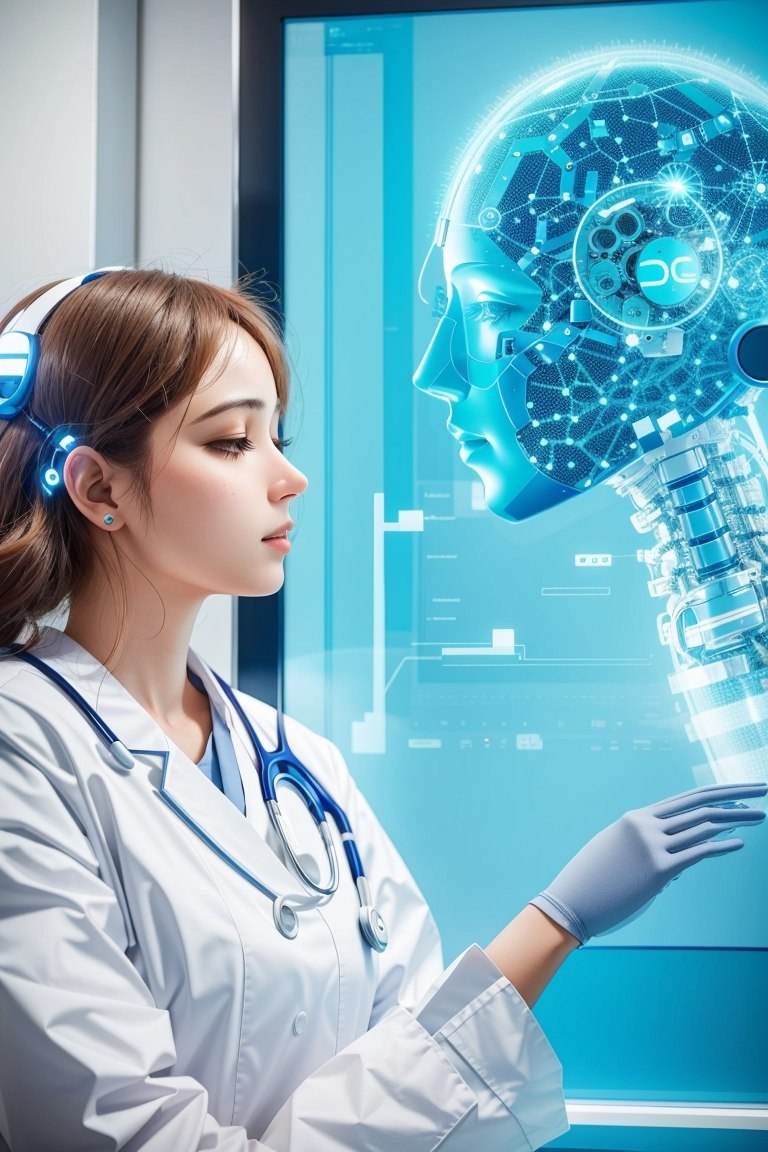ChatGPT and medical 3D motion tracking – The rapid advancements in the world of healthcare technology are nothing short of breathtaking. From the intricacies of gene therapies to the wonders of AI, these breakthroughs promise to usher in a new era of efficient, personalized, and high-quality patient care. Amidst this whirlwind of innovation, the possibility of ChatGPT playing a pivotal role in global healthcare solutions has emerged, as highlighted in a recent ARK • DISRUPT Newsletter.
The harmonious convergence of Next Generation Sequencing (NGS), artificial intelligence (AI), CRISPR, and other gene therapies can significantly boost healthcare outcomes. This alignment has the potential to streamline clinical trials, ultimately cutting down on development timelines and failure rates. And right at the center of this conversation is ChatGPT.
ChatGPT and its Potential Role in Healthcare
Recent studies have put ChatGPT in the spotlight, exploring its potential in the medical realm. From booking patient visits and summarizing physician notes to training practitioners and offering diagnoses, the AI model presents promising possibilities. Yet, its accuracy remains under scrutiny.
In a notable comparison between ChatGPT and Stanford University physicians, the AI disagreed with approximately 60% of the judgment calls made by the doctors. A subsequent face-off at the STAT Summit revealed that ChatGPT was successful in diagnosing one clinical case but faltered on another. Contrastingly, research conducted by Mass General Brigham indicated a favorable performance, with ChatGPT correctly identifying all phases of clinical care about 72% of the time and nailing final diagnoses around 77% of the time.
This variance in performance underscores an essential understanding: ChatGPT thrives with specific, information-rich prompts. Thus, the success of such a tool in medical settings depends largely on how adeptly practitioners can guide and augment the model.
The Role of Specialized AI Systems
Here’s where specialized AI, like LINDERA, steps in. At LINDERA, our AI focuses on 3D motion tracking in elder care, predominantly for fall prevention. This niche specialization serves as an example of an „information-rich prompt“. We’ve entered the realm of elder care with a commitment to precision, a necessity when dealing with the nuanced needs of seniors. Today, our system is not only generating a vast amount of real-world data surrounding seniors but also ensuring that this data contributes to safer, more secure environments for them.
But our influence doesn’t stop there. The LINDERA AI extends its expertise to athletes and orthopedic centers as well. It aids in correcting exercises on yoga apps for athletes, such as for Skill Yoga, and provides valuable insights to orthopedic centers to correct exercise techniques and monitor progress.
The Road Ahead
The juxtaposition of ChatGPT and specialized AI like LINDERA presents a holistic view of the future of healthcare. While generalized AI models can offer a wide range of services and data analysis, specialized AI platforms are crucial in addressing particular challenges with unparalleled precision.
An important next step for companies like LINDERA is to deeply consider and embed the principles of „trusted AI“ into their operational ethos. The European AI Act offers a robust framework in this regard. By ensuring that AI systems are transparent, accountable, and ethically aligned, we not only build technology that’s effective but also one that respects the rights and privacy of individuals.
LINDERA, with its specialization in elder care, is in a unique position to pioneer the integration of these principles. Seniors, being a vulnerable demographic, particularly benefit from technologies that are not just innovative, but also respectful and ethically sound.
By embracing the tenets of the European AI Act, LINDERA can further strengthen its commitment to delivering precision-driven solutions without compromising on ethical considerations.
In conclusion, as we witness the constant evolution and improvement of AI systems, there’s little doubt that they will play an integral role in medical practices. The integration of these tools, when combined with a commitment to trusted AI principles, can pave the way for enhanced efficiency, effectiveness, and most importantly, superior patient care.
The future beckons with exciting, responsible possibilities!

